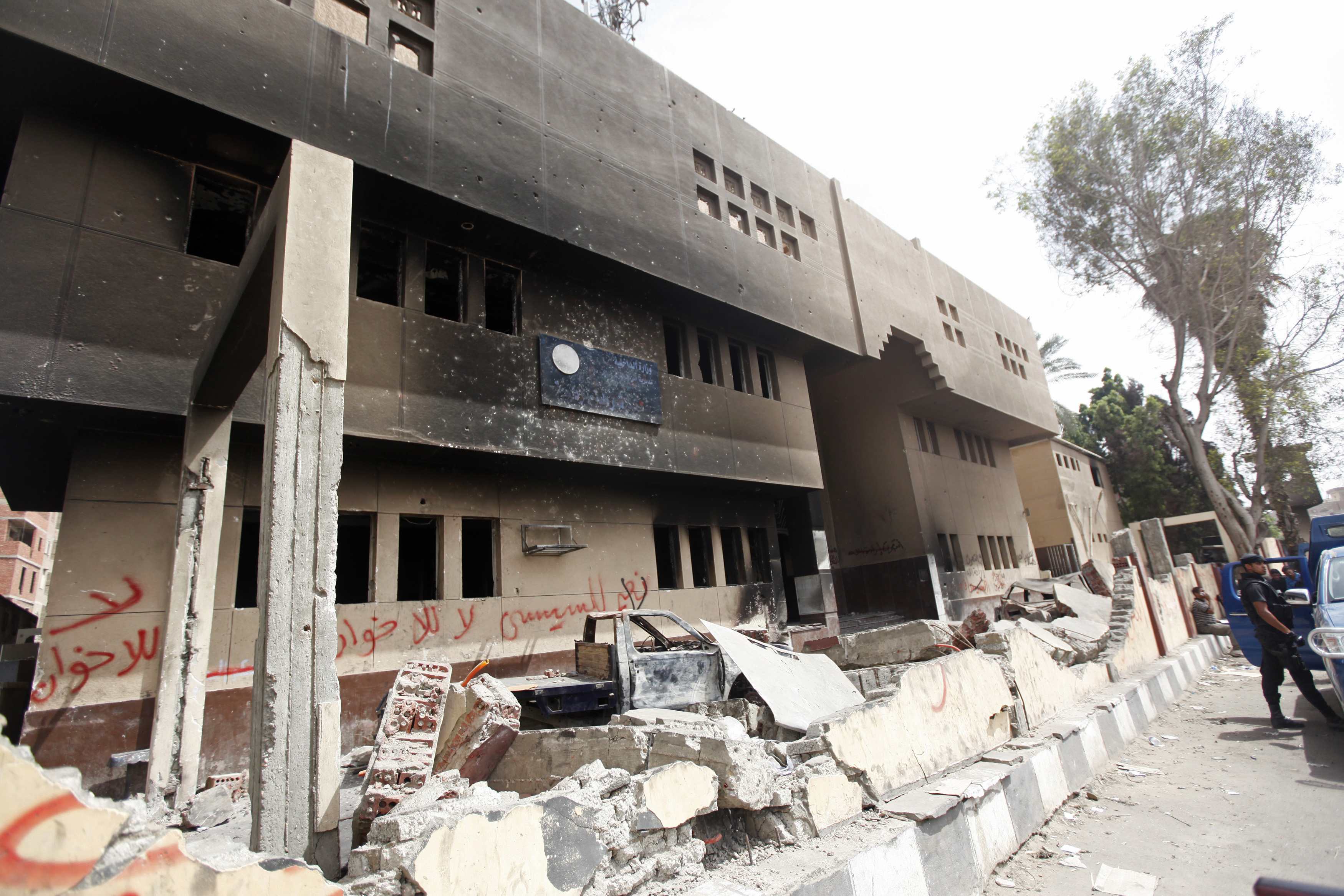Latest NEWS
- Aswat Masriya, the last word
- Roundup of Egypt's press headlines on March 15, 2017
- Roundup of Egypt's press headlines on March 14, 2017
- Former Egyptian President Hosni Mubarak to be released: lawyer
- Roundup of Egypt's press headlines on March 13, 2017
- Egypt's capital set to grow by half a million in 2017
- Egypt's wheat reserves to double with start of harvest -supply min
- Roundup of Egypt's press headlines on March 12, 2017
Court postpones trial of 'Helwan Brigades' defendants

A view shows a damaged police station burnt in a blaze by supporters of former president Mohamed Mursi in Kerdasa, a town 14 km (9 miles) from Cairo in this September 19, 2013 file photograph. An Egyptian judge sentenced 185 Muslim Brotherhood supporters to death on December 2, 2014 over an attack on a police station near Cairo last year in which 12 policemen were killed. REUTERS/Mohamed Abd El Ghany
CAIRO, Dec. 30 (Aswat Masriya) - A Cairo court on Wednesday postponed to Jan. 17 the trial of 215 defendants accused of forming armed groups in the case known in the media as “Helwan Brigades”.
The Cairo Criminal Court cited the absence of one of the defendants as the reason behind the postponement.
The defendants’ lawyer requested that the trial be held without a glass cage and filed a complaint against the “invalidity of the court’s procedures”.
Egypt's then-top prosecutor Hisham Barakat in February referred the defendants to criminal trial before one of the Criminal Court’s terrorism circuits.
Currently, 125 of the defendants in the case are in custody and the rest are wanted.
According to the prosecution’s investigations, the defendants formed a “militant, terrorist” group under the name of “Helwan Brigades” with the aim of launching attacks against police officers and personnel as well as public facilities, especially electricity towers and infrastructure.
The prosecution also said that “leaders from the terrorist Muslim Brotherhood organisation developed a terrorist scheme from inside prison that aims to topple the regime.”
The self-proclaimed Helwan Brigades group, or Kataeb Helwan, made its first appearance in a video, released on August 14, 2014, and circulated on social media networks in which they said they are “fed up” with the Muslim Brotherhood’s “peacefulness” and vowed to target all police facilities in south Cairo.
The video showed 12 masked men holding rifles, with some making a four-fingered gesture known as the Rabaa sign, associated with the dispersal of a major protest camp of supporters of former president Mohammed Mursi on 14 August 2013.
According to the Egyptian Forensic Medical Authority, 627 persons were killed in the Rabaa camp’s dispersal, but US-based watchdog Human Rights Watch set the death toll at 817.
Violence has soared in Egypt after the military’s ouster of Mursi, who hails from the Muslim Brotherhood group, in July 2013. Attacks targeting police and army officers have particularly increased after Rabaa’s dispersal.
Egypt listed the Brotherhood as a terrorist organisation in December 2013 and insists it is behind the current wave of militancy.
The Brotherhood continuously denies the accusations.










